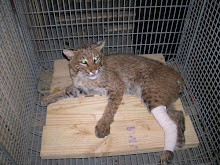Press Release written by Mollie Burgett, Middleburgh Kestrel Project
The American Kestrel is a small falcon native to most parts of
North America. It feeds primarily on large insects and small rodents.
Due to habitat loss and competition from invasive species, American
Kestrel populations in our area have declined by
an estimated 62% over the past 40 years. That is why students at
Middleburgh High School have started a local kestrel conservation
program.
It is the Middleburgh Kestrel Project’s (MKP) hope that we can
help to keep this amazing bird from being placed on the
threatened species list in the years to come. The project started as a
suggestion from local wildlife rehabilitator and teacher Wes Laraway.
Mrs. Mollie Burgett’s AP Environmental science class was able to build
thirty five nest boxes after a generous grant
from the West Fulton Rod and Gun Club and assistance with space, tools
and equipment training from David Dickerson in MCS’s technology
department. It quickly became evident that thirty five boxes would not
be enough to meet demand from the community. Students
attending the Capital Region Career and Technical School in Schoharie
in Mr. Matt Millard’s class constructed an additional twenty four boxes
with another batch currently in the making. Wildlife Management students
at SUNY Cobleskill have also placed several
nest boxes in conjunction with New York Wildlife Rescue Center.
Middleburgh’s environmental science class will be placing 8 boxes around
school grounds in the next week and submitting nesting data to the
American Kestrel Partnership. The AKP is a national
citizen scientist project that is working to research wide-spread
kestrel declines and have recognized and praised the work being done by
Middleburgh students. The MKP intends to partner with local business and
land owners in placing more boxes for monitoring
and research purposes. The Middleburgh Kestrel Project is also
consulting local wildlife rehabilitator Kelly Martin as well as NYS DEC
in the placement and construction of their boxes.
The nest boxes are now
up for sale. The $20 cost of each box will be put
back into the program and used to buy more building supplies. The boxes
measure 18 inches tall, eleven inches wide, and eleven inches deep with
a 26 inch back mounting board. Boxes come with predrilled mounting
holes, screws, shavings for nest substrate and
mounting / monitoring instructions. They can be hung from most trees
and poles, ideally 8-12 feet off of the ground, if not higher. Placement
near a field is essential with the box ideally oriented south east. The
best time to hang boxes is now; just before
kestrels begin their northward migration, but can be hung as late as
April in order to attract kestrels this year. If you have any questions
about the project, or would like to purchase and place a kestrel nest
box, or make a donation to the project please
contact the Middleburgh Kestrel Project through their e-mail: middleburghkestrels@yahoo.com
.JPG)







No comments:
Post a Comment